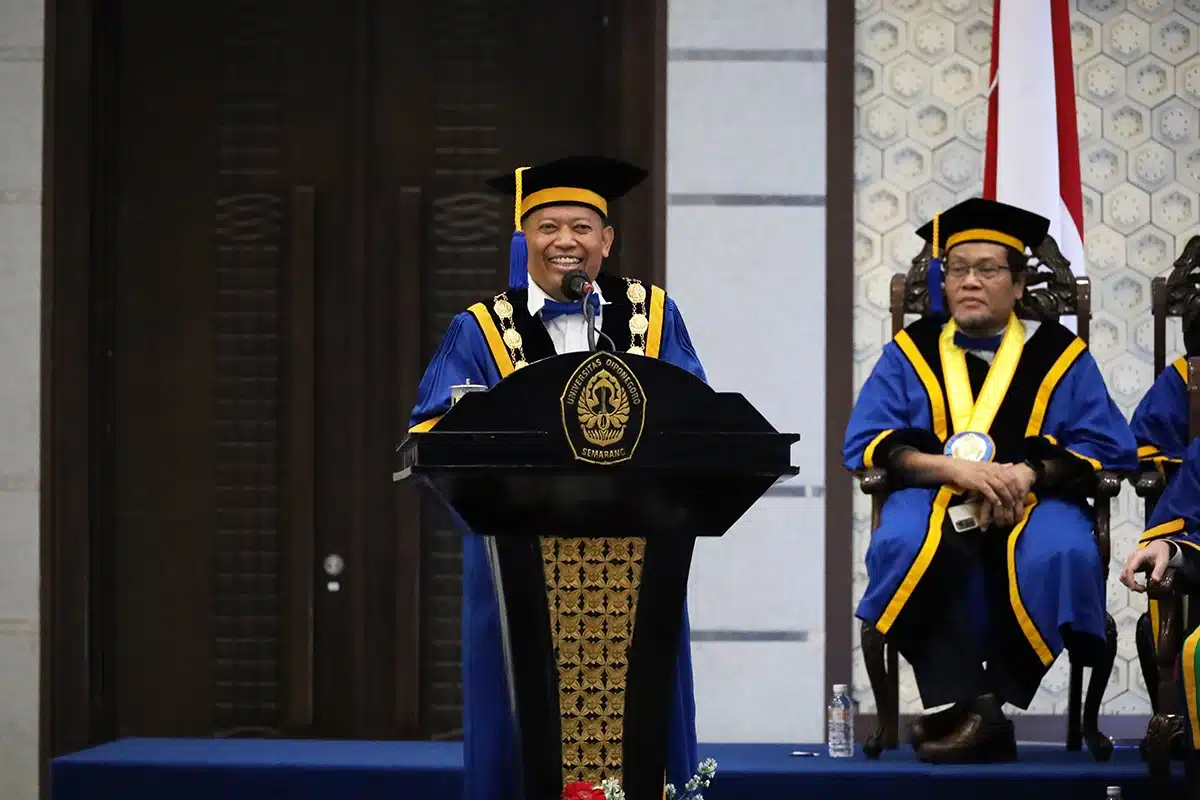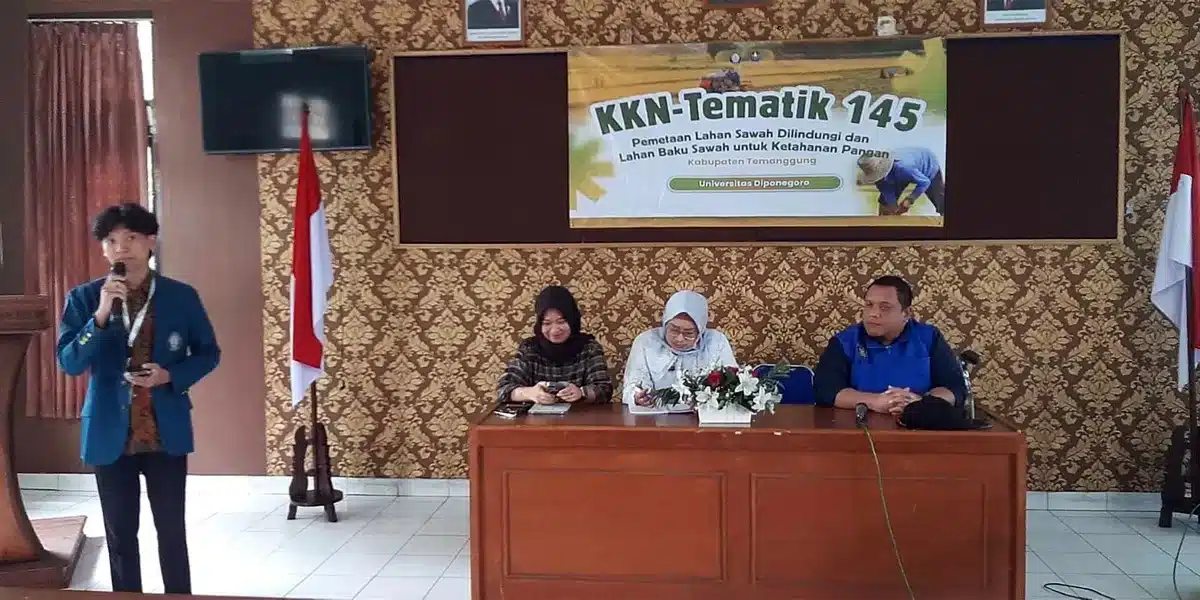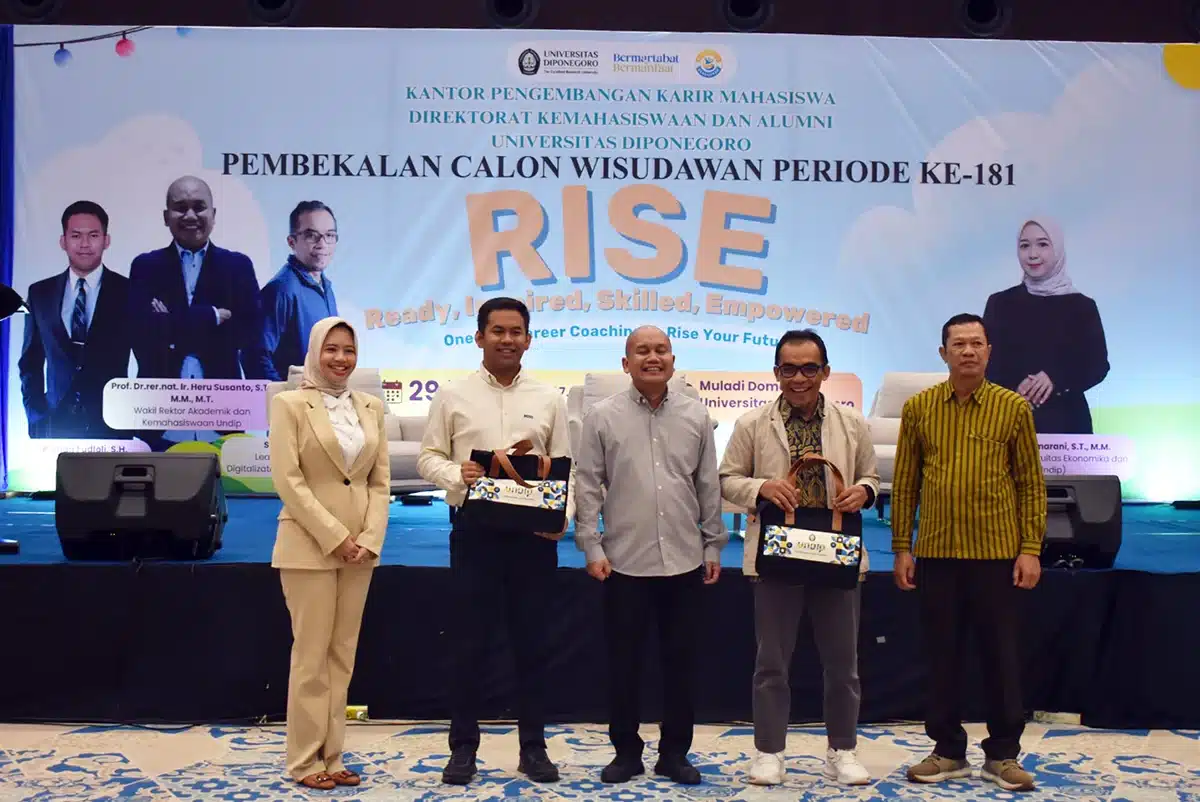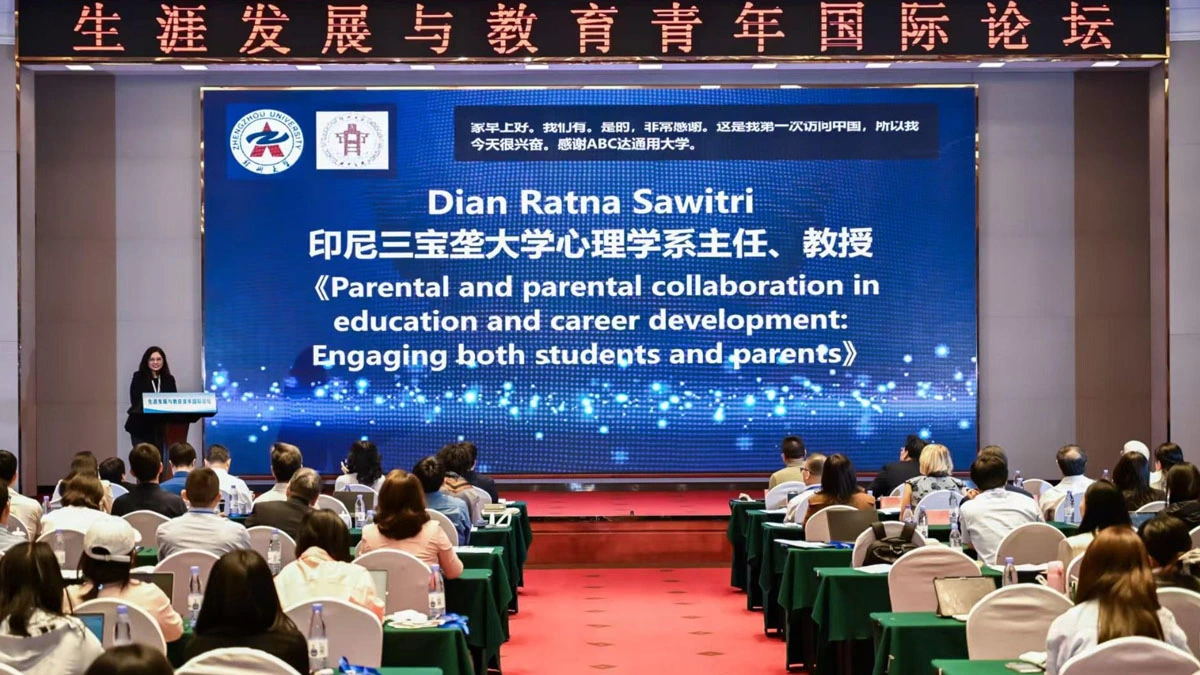UNDIP, Zhengzhou, China (May 27, 2025) – Dean of the Faculty of Psychology at Universitas Diponegoro (UNDIP), Prof. Dian Ratna Sawitri, Ph.D., served as one of the keynote speakers at the Youth Forum, a collaborative initiative between Zhengzhou University, the Henan Provincial Government, and the Asia Pacific Career Development Association (APCDA).
Held on May 25, 2025, the forum brought together academics, students from various universities across Henan, policymakers, as well as researchers and career development practitioners from the Asia-Pacific region. In her role as the APCDA Area Representative for Indonesia, Prof. Sawitri delivered a keynote address titled “Parental and School Collaboration in Education and Career Development: Engaging Both Students and Parents.”
The Youth Forum was part of the 2025 APCDA Conference, held online on May 12, 14, and 16 and in person from May 23 to 27 at Zhengzhou University. This year’s conference theme was “Embracing the Future: Leadership, AI, and Career.”
In her presentation, Prof. Sawitri delivered material entitled “Parental and Parental Collaboration in Education and Career Development: Engaging Both Student and Parent.”
This issue has drawn the attention of researchers and career practitioners in the Asia-Pacific. She emphasized that career planning among adolescents must involve not just students but also parents, educators, and policymakers. Effective career planning for adolescents requires synergy between their aspirations and competencies and the expectations and resources provided by their families and schools. Active collaboration between students, parents, and educational institutions is essential.
She noted that “The complexities of today’s era—marked by rapid technological change, socio-political uncertainty, and constant distractions—make career decision-making even more challenging for young people. Adolescence is a critical period where future options begin to narrow into more concrete career aspirations. This process demands personal achievement, career role models, family and school support, value alignment with parents, and proactive character development.”
High rates of youth delinquency, such as school absenteeism, street brawls, and rising cases of mental health issues like depression and anxiety, often stem from the absence of a clear career identity. Yet, career identity is one of the most rapidly developing aspects of identity formation during adolescence.
For this reason, professionals and scholars across the Asia-Pacific region emphasize ten key priorities:
- Stable, forward-looking career policies
- Strengthening professional competence and leadership
- Access to diverse learning resources
- Attention to individual student needs
- Active student engagement in planning their future
- Career roadmap guidance
- Real-life curriculum relevance
- Collaboration with industry
- Synergy with schools and universities, which are the primary focus of the year
- Parental involvement and engagement
Through Prof. Dian Ratna Sawitri’s active participation in this international forum, UNDIP continues to contribute evidence-based solutions to global challenges, particularly in youth career development. This effort reinforces UNDIP’s mission to be “Noble and Valuable” in the Asia-Pacific and beyond.
“As a concrete contribution, the Faculty of Psychology at UNDIP has launched several evidence-based community engagement initiatives, emphasizing the vital role of families, schools, organizations, and communities in addressing career development, family relations, and mental health issues. These initiatives support UNDIP’s vision as a noble and valuable institution,” she said.
The central question shared by many is: How can adolescents build hope and purpose in their careers, set academic goals, recognize mental health concerns, and offer peer support? These can only be achieved with meaningful support from parents, teachers, communities, school policies, and decision-makers. (Public Communication/Faculty of Psychology)










